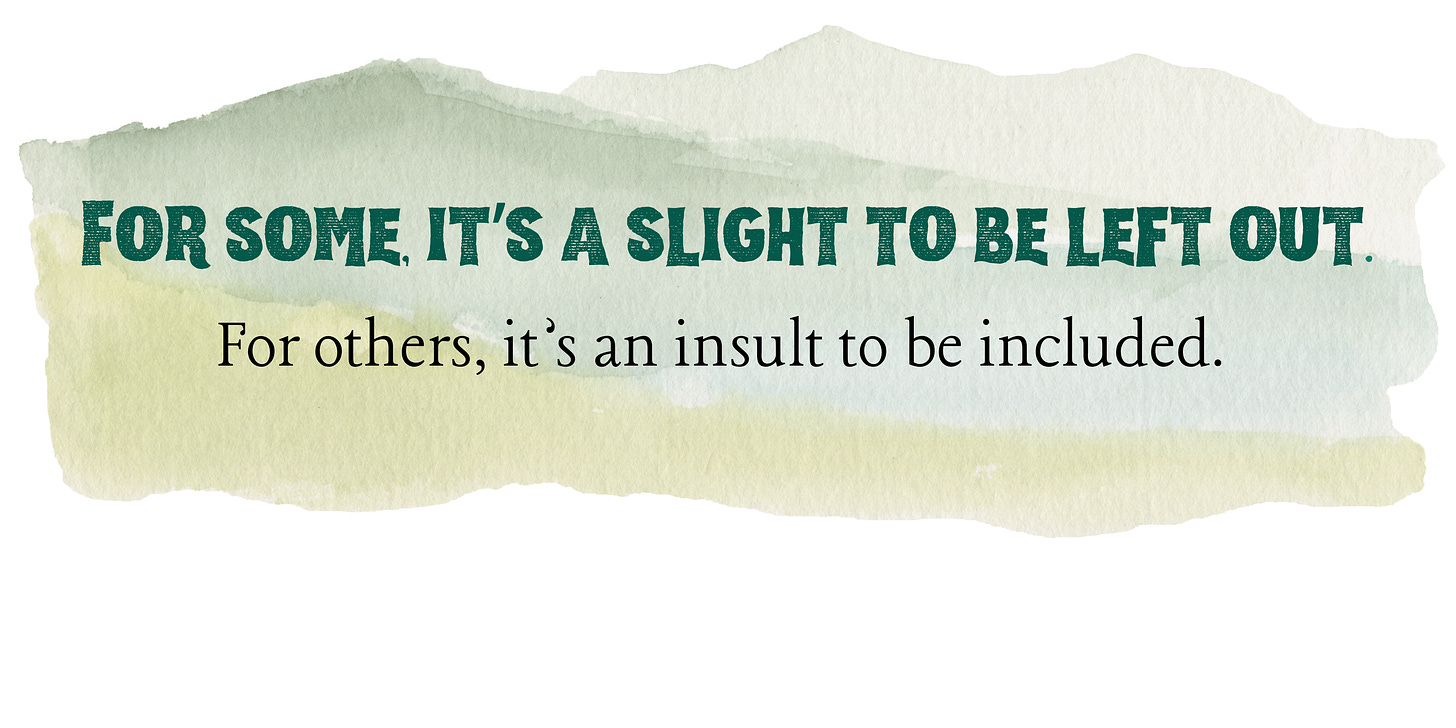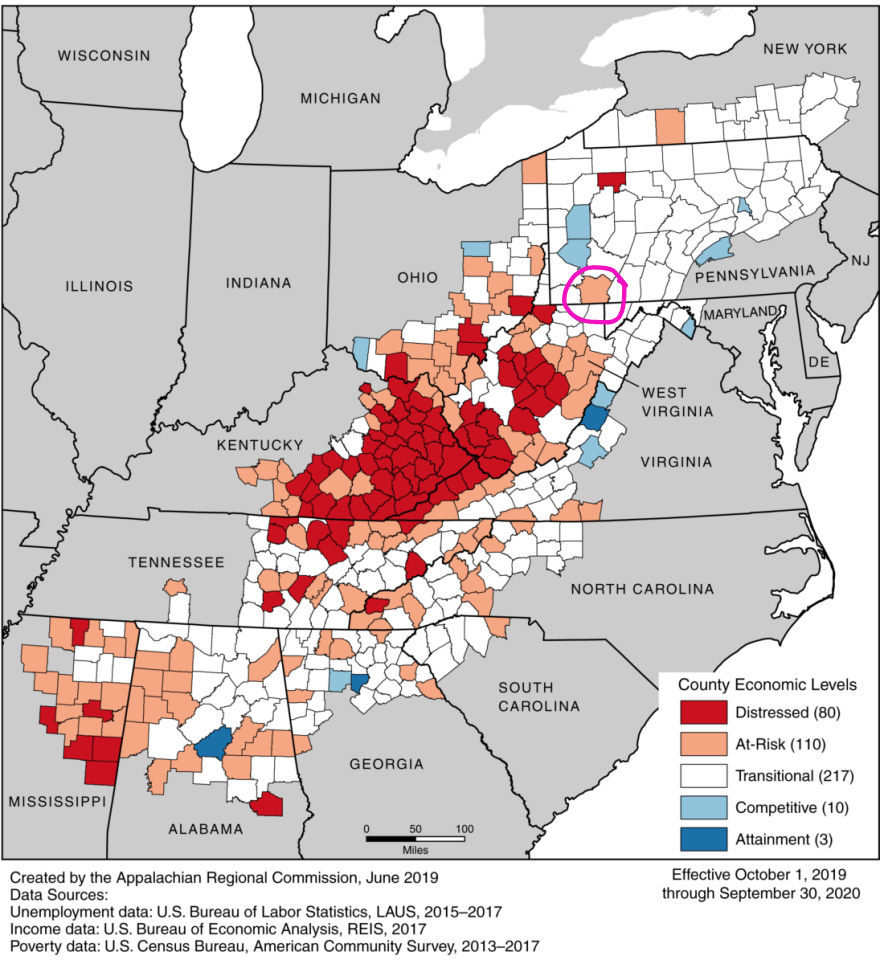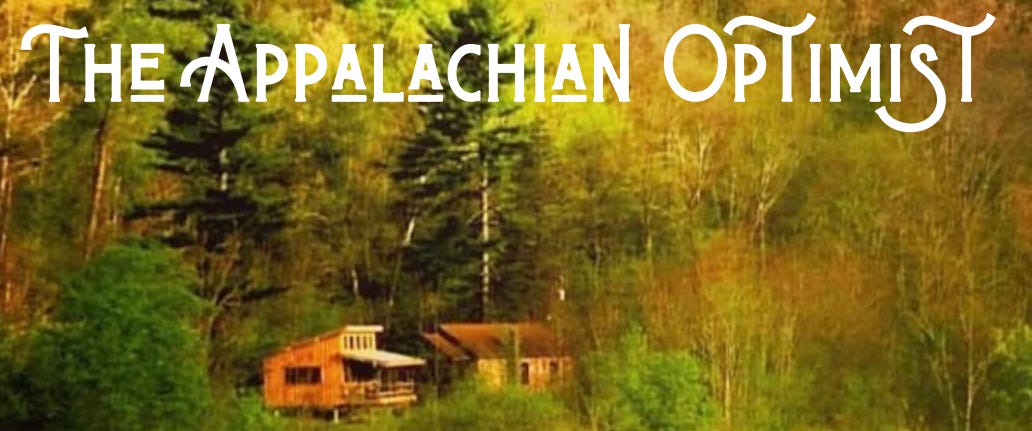Even if We Are Heading to Mars, Geology Still Matters
My thoughts on why Appalachia resists definition
I am one writer. Appalachia is a big subject, full of complexity and paradox.
Most weeks, I will take on its mysteries myself, but once in a while I will reach out to guest writers, inviting them into these pages to share their unique understandings. Keep an eye out next week for one of my favorite contemporary fiction writers, Stephen E Meyer, as my first guest here at The Appalachian Optimist.
It’s the geology. Always has been.
Elon, God bless him, keeps looking up. Up, out, and away. And I get him. I get his hunger for expansion. He is our manifest destiny newly manifested. Never comfortable, always pushing towards the edges. Those Lewis and Clark types are never quite sane, and do we really want them to be?
But as Elon looks up, my job is to keep looking down. Specifically, down to the earth beneath my feet. I think that is where my answers will always be.
My father, the coal miner turned rock crusher turned Fayette County philosopher, cracked the code of geology. He understood. But more than simply understanding, he loved. I think that is the real answer to the question of how to label a person an Appalachian.
Love.
In his much too short seventy-two years with his feet firmly on and sometimes below the ground, my father shared the secrets of falling in love with land. Not all the land, just his piece. His piece is now my piece. And I get to keep cracking the code of geology in my ways.
Before I explore this falling in love subject, I have a question for you.
How does the tagline I use for The Appalachian Optimist make you feel?
The first time you read it, did it ring a bell of understanding? Did you chuckle under your breath and quickly identify which of the two people you are?
My gut tells me that you are here because you identify with the first line. And after you hear the two together, you start identifying the people you know who fall into the second group.
I have nice people who live next door who would never have considered calling themselves Appalachian. Same with relatives. Drive an hour north to Pittsburgh and you will find a whole city that doesn’t give thought to the term. Now, call them rust belters, and that might mean something, but Appalachian, that’s for the West Virginians.
Something changes, there seems to be an invisible border that you can’t quite put your finger on when you drive south of Pittsburgh. Some might say that border is Fayette County, but that’s not quite right. Because you can feel it bleed over the borders of counties. Maybe the feeling is simply rural. But that’s not exactly it either. A person can be rural and clearly not Appalachian.
Take a careful look at this economic impact map.
I had to fill out a form the other day and tick boxes to describe my area and all the ways it is worthy of assistance. I feel a strange mix of cringe and outrage when I see my home listed in places that scream failure. But I did it. It said mark all that apply. These were the boxes I chose.
Residence in a region adversely affected by persistent poverty of inequality
Residence in a rural community
Membership in an underserved community
I translate the above map as simplifying Appalachia into levels of color-coded failure. There is so, so much more to us than that.
Appalachia is experienced in pockets.
And pockets, I think, are geologic. It’s the mountains. But also, the foothills and hollows. And definitely the rivers. The geologic borders of Appalachia are extreme. Still difficult to infiltrate, even in this era of drones and GPS.
The mountains stopped the Scots Irish immigrants from venturing farther west, encouraging them to plant their homesteading flags and scratch out generations of culture. Some say it was because the ridges felt like the homes they had been forced to abandon. I wonder if the Italian demographic still so strong in West Virginia was a similar story. The mountains protected these pockets of culture that have lasted so much longer than other areas of the country. Isolation shapes culture.
And then there is the coal. Not so much pockets, but seams of black geology that stamped a dirty fate onto the faces of so many Appalachians. Coal is a legacy that is not yet finished. A fuel that the world needed, so we dug. And are still digging.
Geology shapes culture.
That’s one of the codes that needs to be cracked to define the Appalachian. Do they love their geology? Do their hearts ache for the rounded down mountains when they visit the steep, sharp peaks of the Rockies?
As with so many truths that take a while to get to, it’s the love that seals the answer.
And I think that is my answer, or part of it, as to why I see it as so impossible for the outside world to define the Appalachian people. Because how can you define love? How can someone who hasn’t felt the pull down a bone deep familiar holler understand it? How can someone who has been shown an economic map with colors representing numbers ever understand the love that’s hidden in the heart of a wrongly coded county?
Today, I used the word GEOLOGY. As I build on these essays, I will choose more words to help me unearth the optimism that lays buried in our dirt.
Some words that I look forward to pursuing as I try to define the undefinable:
Memory
Isolation
Loyalty
Creativity
Noncompliance
Faith
Escaping versus staying
Tragedy
Thank you for being here with me for the digging,







Appalatian Optimist rings a clear bell of the future. I have always believed that the people of its communities make do, improvise and live life on their own terms- another words, survive with little in the monetary sense, but nevertheless have created and lived full lives. I wish I had had more time to explore moreof the states. About 40 yrs ago my husband and I traveled back to NE around Easter on the Blue Ridge Parkway. I was enchanted by the spring ephemerals. It snowed! We had to descend into a hollow, where there was an excellent German resturant, and motel. I felt watched over in a good way.
You are so fortunate to have such rich ties to the land and family. And I love how much you appreciate both.